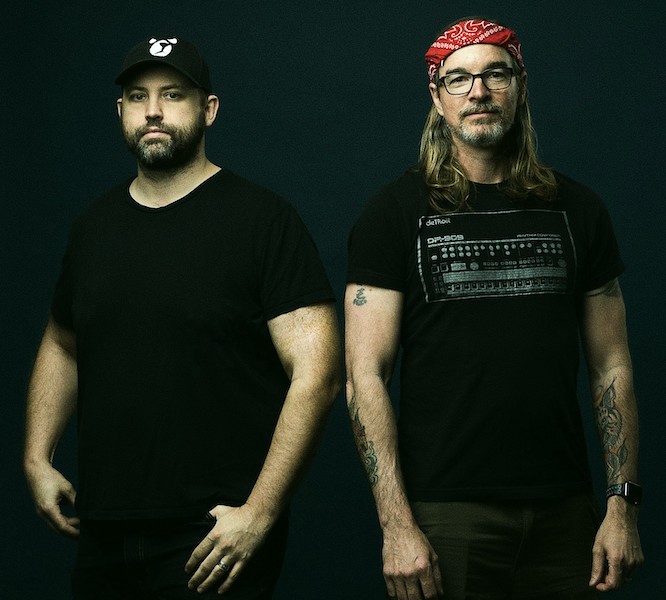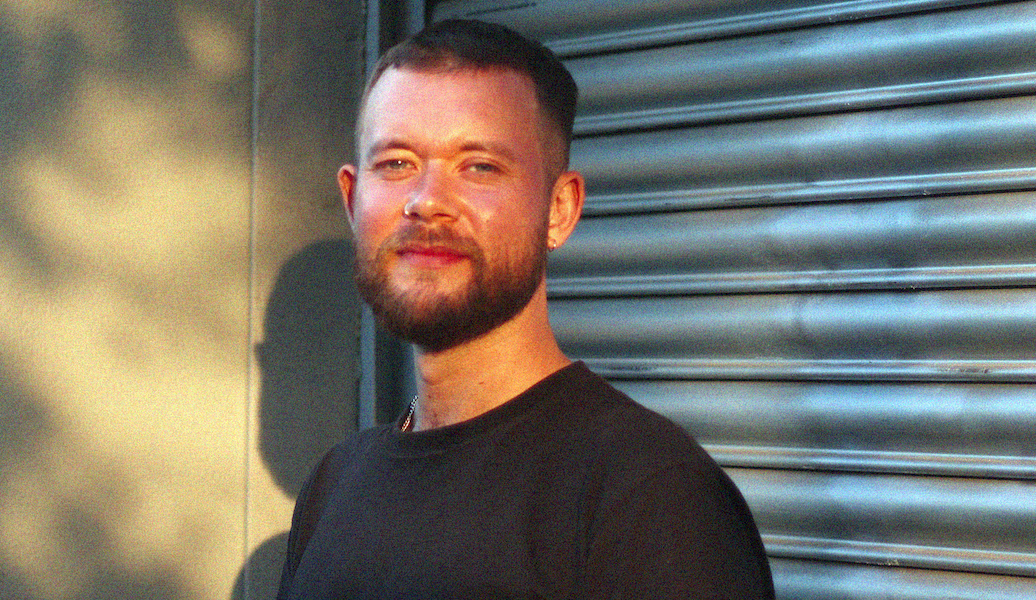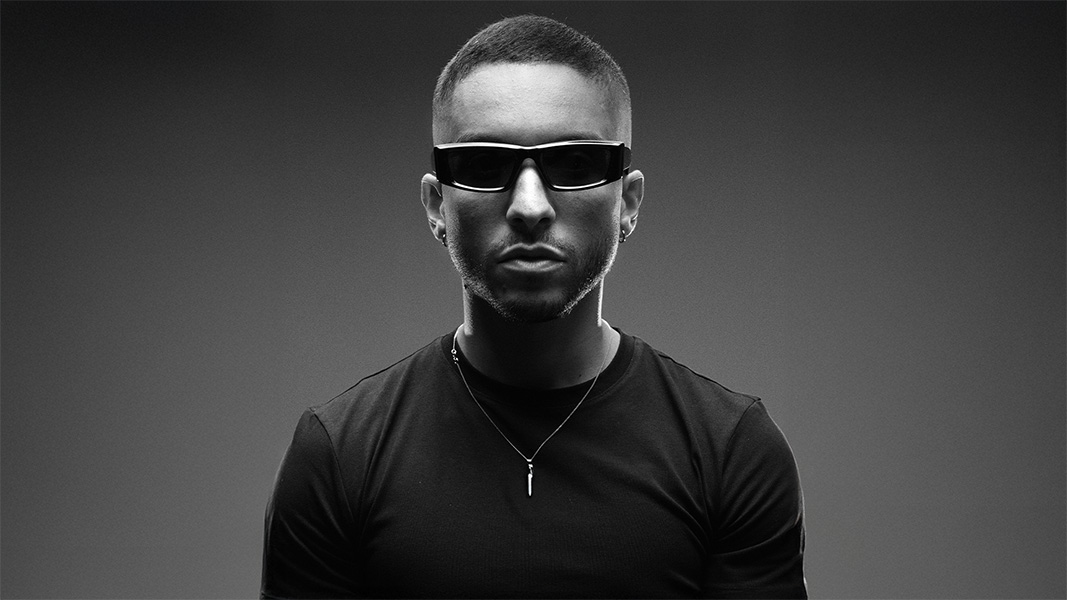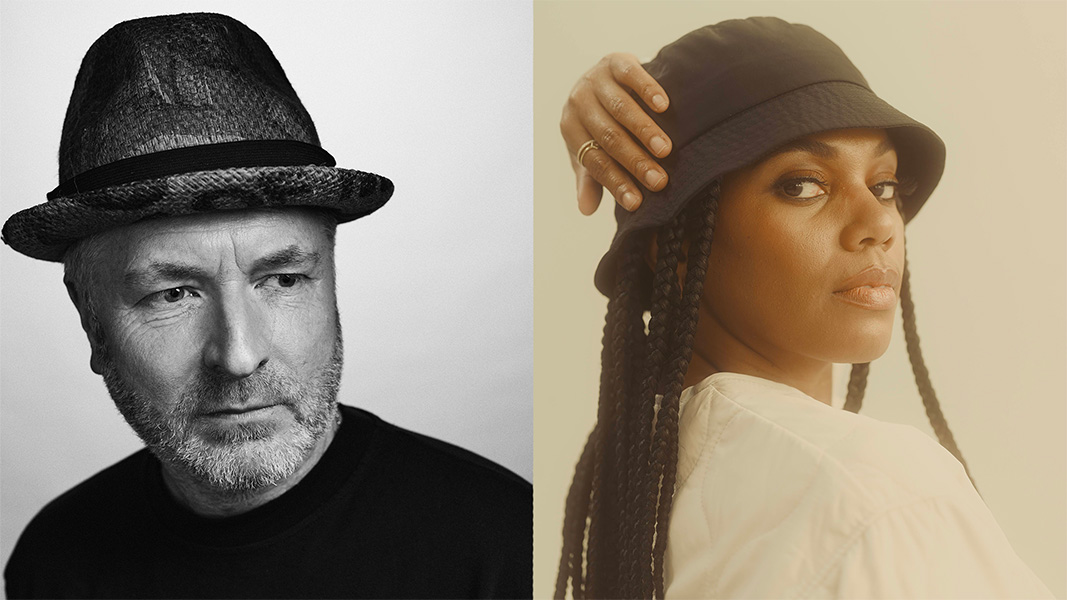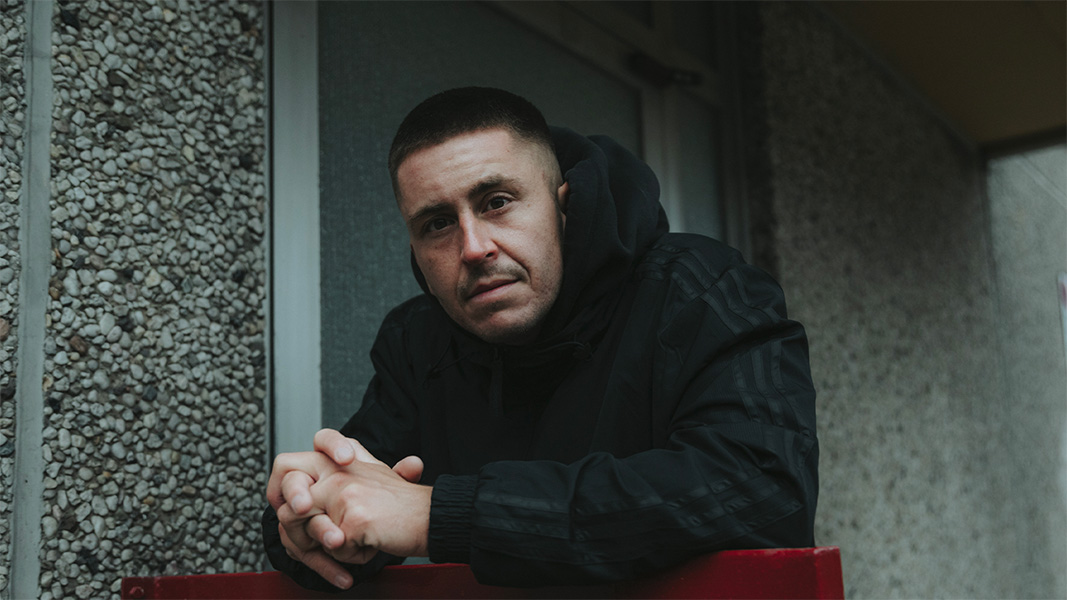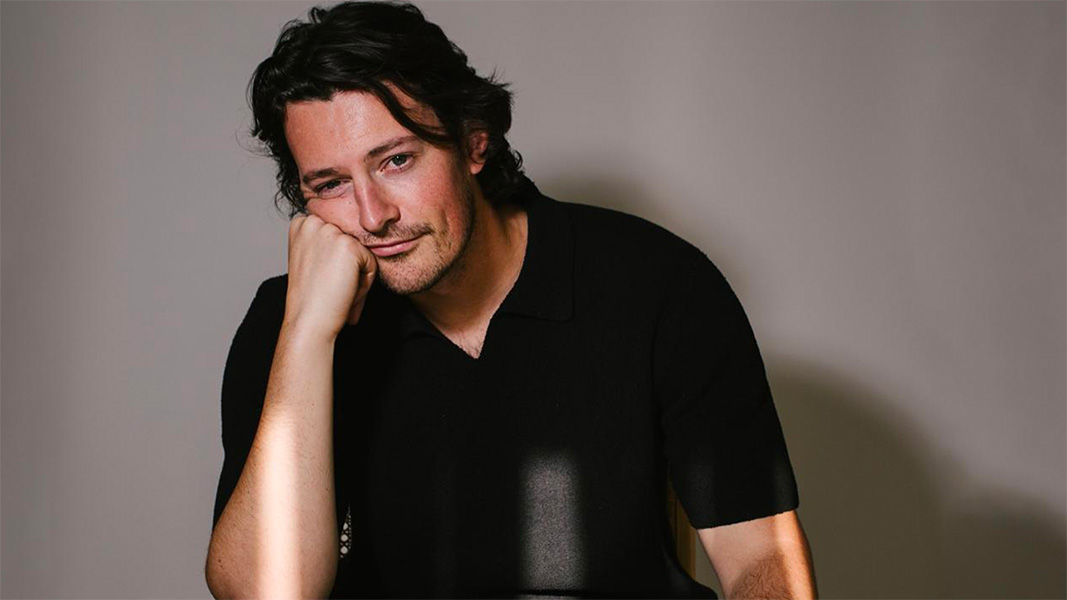Drawing inspiration from Detroit’s meteoric rise from the ruins of the past, BerettaMusic, a label founded in 2002, took a hiatus and is back, rising from the ashes like it’s birth city has done. Originally an artist collective formed by Ryan Sadorus, Tammy Sadorus and Brian Kage, who all first met at an open turntable night in Detroit in 2001. It was a magical time then in the city, and the label became a launching ground for artists like Seth Troxler, Ryan Crosson, Luke Hess, Lee Curtis, with later releases from Joris Voorn, Adam Jay, Greg Gow and DJ Vitamin D.
Airport Society are Brian Kage and Ryan Sadorus, who founded Beretta nearly 20 years ago. Detroit native Brian Kage, has released on FXHE, and Carl Craig’s Planet E, PokerFlat, and Echospace, playing at Fabric and Berghain over the years. Ryan Sadorus first came onto the scene during his days in Tokyo, listening to Ko Kimura, DJ Emma, Ken Ishii and Satoshi Tomiie. He had a monthly residency at Globe, in Guam, and worked as a promoter booking talent, as well as being a regular radio host on the island sharing global dance sounds. Moving to Detroit in 2001, he met Kage, and the rest is history.
This release features the vocal of Demetrius Carrington, who has been instrumental in the city’s techno scene, a club owner of two of Detroit’s most influential underground clubs, Portal and 10 Critics, he’s had a front row seat to legendary nights that have shaped the sound of the Motor City. ‘Life Like’, spreads a positive message for lovers of Detroit dance culture. The powerful voice of Carrington floats on top of the emotive strings and classic house beat. Brian Kage steps into remix stripping the track back to a deeper and more spaced-out driving techno joint, dicing into the abyss as an ode to those legendary late night, dark Detroit warehouse parties. The EP closes out on an outstanding and majestic instrumental.
WWD: Thank you for taking the time to talk to When We Dip. Where are you right now? How are you spending your day?
Ryan: Thanks for chatting with us! I’m in the studio currently and I’m usually balancing my time between music, my job in tech and family. All full-time gigs.
Brian: Pretty much similar to Ryan. Family life, studio, twitch life, studio for clients, etc.
WWD: It would’ve been cool to have talked to you in your home town in person. Where would be a good place to grab a drink and talk?
Ryan: Ah good point… I think grabbing a coffee and walking downtown would have been cool. This city is thriving once again and it’s a beautiful thing.
Brian: Spotlite is a cool spot where they have drinks during the day, a full selection of records for sale, and great space for dancing at night.
WWD: Were you both born and raised in Detroit?
Ryan: I was born in Illinois, travelled the world in the Navy and then relocated to Detroit back in 2001, that’s when I met Brian.
Brian: Born and raised in the D.
WWD: Aside from a hell of a lot of great music, the city has had its up and downs. From been a thriving hub of commerce and industry over the centuries, to the automobile boom in the 50s, and later its decline in 90s, what is the social and economic climate like in the city today?
Ryan: Kage will probably have more perspective on this since he’s been here longer than I have, but in 20+ years I’ve seen both of those ups and downs. Right now, Detroit is booming however with many new businesses moving in downtown, young people choosing to live down there and the overall social scene seems very healthy with shops, restaurants and the like opening up.
Brian: Yes, the city is definitely booming with a lot of opportunities, and more importantly, people!
WWD: Its history is undeniable. There’s so much talent that has come out of the city from Soul to Motown to House, Techno and far beyond. What sound do you think has been the biggest sound to come out of the city?
Ryan: Being the birthplace of techno, that genre really put Detroit on the map with regards to electronic music but there are a lot of great house music artists as well, so while techno may have started it, I think it’s branched out significantly and is always evolving.
Brian: This is hard to pinpoint, but from a global level, of course Motown and Detroit Techno. Of course, Hip-Hop has been a huge thing here with the likes of Eminem, ICP, Esham, J Dilla, and many more.
WWD: How is the scene in Detroit. Are clubs and gigs in full swing now?
Ryan: The scene is overall healthy with a few main clubs such as Marble Bar, Spotlite and TV Lounge all doing quality events. Any given weekend you can find some quality music at those establishments.
Brian: Yes, the quality of events is quite good here although I wish there were more focus on the roots of our music which is the real style of Detroit techno. I guess our tastes form in our early years.
WWD: Is there an album that you recall when you were a kid that had an impact on your musical direction today?
Ryan: I grew up on rock and roll for the most part and was a big fan of the band The Police when I was growing up. I’ve always enjoyed Stewart Copeland’s drumming style and ska/reggae influences.
Brian: I would say a big album for me growing up was Yaz’ Upstairs at Eric. Ironically enough, The Police were also a big influence on me as a kid along with Michael Jackson, Zappa, Men at Work, and an assortment of Nintendo/Genesis video games.
WWD: When did you both meet and what were you both doing up until that time?
Ryan: I met Brian at an open table sort of night at this spot in Detroit called Bumpers way back in 2001. I had just moved to Detroit shortly before then after my time serving overseas in the Navy.
Brian: When Ryan moved here, I met him and Tammy (his wife) at this place called Bumpers for an open turntable night. I was DJing around the city and just learning as much as I could about producing music.
WWD: When exactly was Beretta Music formed and what was the catalyst for that beginning?
Ryan: My wife Tammy thought up that name when we were walking around Tokyo back in 2001 and the original idea was this sort of artist collective thing to build relationships with other likeminded artists. It wasn’t until meeting Brian in Detroit that it sort of naturally morphed into a label and a way to showcase not only some of our music but also of many talented artists that we could help at that time, like Seth Troxler, Ryan Crosson, and others.
WWD: Is there a music mission at Beretta, or if it’s good it goes?
Ryan: Well, the overarching goal is the same as it was when we first started really, and it’s all about connecting people, building bridges. Musically we want the music to be dancefloor friendly, mixable, and likely more on the house side, but we don’t necessarily split hairs on the sub-genre styles, we usually just know what is worth putting out when we hear it I suppose. We do love to help expose new and emerging talent from Detroit so that is also a goal.
Brian: The goal has always been establishing a great friendship, and almost family-like vibe with Beretta. I think being a great person with integrity, along with being talented is what’s really important to being a part of our label.
WWD: What were some of your key releases?
Ryan: I really think our latest releases are the best as we’ve had time to sort of refine our style and really put everything into the full package, such as full color sleeves with the artwork focused on the specific artist on that release.
Brian: I agree. We’ve learned a lot from our past and grown as artists and label managers. There was no handbook for any of this, so it’s been a growing process where we are still learning today.
WWD: How does the A&R process work for you?
Ryan: Well, we like to discover and foster talent in Detroit first, but we have an overall sound we are looking for that typically Kage and I can cook up ourselves most of the time. That being said we are always keeping our ear out for new sounds local and abroad.
Brian: First of all, I think the artist who’s sending us tracks needs to really be familiar with our label and who we are. Some folks who send us demos are not personal whatsoever in their approach. Of course, the music has to be great, but most importantly, I think it’s important for the artist that is sending us music to be making music for the right reasons.
WWD: You were involved in the beginning of Seth Troxler’s career. What part did you guys play?
Ryan: Well, my wife and I met Seth when he was only 15 years old and snuck into the club Motor Detroit with a fake ID. I believe that night he was taking pictures in the club of the DJ’s and Carl Cox’s minders had his film ripped out from his camera… oh good times… clearly a time before cell phones. We go way back and are friends with his parents to this day. He was always a super likeable and a funny guy and I still keep in touch with him but he’s a super busy dude. Brian can probably speak more to the studio work that he collaborated on with Seth as they did several tunes together.
Brian: We saw potential in him from a very young age. He had a lot of charisma and was learning how to DJ at the time. He also learned a lot about music working at the record store Melodies in Memories where he met a lot of local cats and heard a ton of music coming from Germany. Seth was really into minimal techno, Matthew Herbert, and Ghostly, so we branched off into that style and created a label called “Beretta Grey.” I was able to show him how to get started making music in the software program Reason, and helped engineer and co-produce a lot of his first tracks on Beretta and even helped out with his first tracks on FXHE, Esperanza, Ghostly. etc. He had good ideas for sure, and I was always happy to help as mentor in the studio. I think his charisma and tenacity got him to where he is today and we’re ultimately happy for him.
WWD: What releases have you got in the pipeline on BerettaMusic?
Ryan: Well, we have 3 vinyl releases planned this year, which is pretty tough to pull off these days with pressing plants being pretty backed up. We released the Detroit Dude EP by me in Jan/Feb, Now our “Life Like EP” in May and we are set to release a fantastic release by Nic Joseph in late summer, early fall. A busy year!
Brian: I’m hoping to possibly do a solo project in the future on Beretta as well.
WWD: Your new release ‘Life Like’ comes from your production duo Airport Society. When did this form and why did it take you guys so long to produce together?
Ryan: Yea, I think we sort of went our own ways for a bit working on various projects and it just made sense to get back together and work on some things. We did our first track way back on the first BerettaMusic record called “Red Eye” but that seems like a long time ago… oh wait, it was.
Brian: I think it also comes down to making the right song too. I think over the years, we’ve sent each other some projects but nothing panned out quite like this song.
WWD: Is there an Airport Society sound? What is it that defines that sound?
Ryan: Good question.. I think the sound (and Kage can give his take as well) is really a combination of our sounds. I think we combine our strengths really in the way we produce… We tend to end up with a housey sound and aim for dancefloor friendly vibes that might appeal to a wider group and maybe cross genres. Brian: Yeah, for sure, I think it’s like a mixture of house with a bit of an edge. It has to have some soul in there as well.
WWD: Where does the magic happen? Where is your studio?
Ryan: Well for me every day is a learning process and the magic for me is learning to be better with EQ’ing each track and working to maximise the overall sound of the tracks. Brian is the master there, so I’m learning a lot from him in the studio.
Brian: My studio is in my house. It’s a small bedroom studio filled with a bunch of equipment. I think the real magic is in the arrangement with the marrying of the right sounds and melodic structures.
WWD: What kind of setup do you have in your studio?
Ryan: My studio can’t touch what Brian has built lol, so I’ll let him share some insight.. I have mostly software in my studio and leverage Ableton for arrangements and production overall.
Brian: I love analog synths and drum machines. I’m getting more into using tape machines, old school samplers, compressors, and all sorts of units to treat my sound. I’m running a combination of Pro Tools and Ableton Live for recording and mixing.
The Moog, the Korg or the Roland?
Ryan: Roland for sure!
Brian: Roland, then Moog, but also love Korg. So TOUGH.
WWD: On your new track Life Like, how did the production process play out?
Ryan: I had built out the overall basic arrangement of the track and I had obtained Demetrius’ vocals and was playing around with it. Brian had sent me some strings that he recorded earlier, and I threw that in there and was messing with it. I sent the raw form over to Kage and he worked some magic.
Brian: Yeah, Ryan initially sent me the track and I thought it was a very good idea with the vocals, and my strings. I rearranged the vocals by cutting and chopping bits that worked with the idea of the song, took the “life like” vocal part and made that the “hook” for the song, built the strings up a bit more with an additional layer, and laid down a bass line with the trusty fender. I sequenced the track, adding EQ and FX for flavour, and sent it back to him to check out.
WWD: What can you tell us about the bones of the track?
Ryan: I think sometimes the best stuff are happy accidents and this was the culmination of a few things coming together… Demetrius laying down those vocals and sharing them with me along with Brian’s own string arrangement and bass which he played live on a bass guitar.
Brian: It’s a rather simple track but I feel like it has the positive energy we all need today.
WWD: Demetrius Carrington’s vocal features. What can you tell us about him and the lyrics?
Ryan: I’ve known Demetrius for around 20 years. He booked me to DJ at this club he ran called Portal in downtown Detroit many years ago… which used to be the Submerge HQ before it was Portal. We have stayed in touch all these years and are working on some joint business ventures right now as well. He’s a super great guy and knows everyone.
Brian: Exactly, he’s been around a long time, and is a good guy!
WWD: What new material are you working on right now?
Ryan: I’m always working on music and sharing with friends locally to get their feedback. I just finished up a tracky, west coast vibes house remix which will be out soon. I’m also collaborating with some local house heroes on some quirky house business.
Brian: I just finished up my next record on my solo label, “Michigander.” It’s called 808 in the Great Lakes State and will be released late spring here. It pays homage to 808 State and also my love of the 808 drum machine.
WWD: Do you have plans for an Airport Society live?
Ryan: I think Kage and I do best when we are in the depths of the night DJ’ing together and playing off of each other in a tag team Dj set… but live is really cool. We have chatted about doing this and having Demetrius come out and do live vocals which might be neat 🙂
Brian: Live would be cool! DJing is probably more our style, but I’m open to suggestions. Hit us up, we want to come party with you. 🙂
WWD: Have you played at Movement? What’s the festival vibe like?
Ryan: Kage has played there more than myself, but I did play way back in the day before it was what it is today. Mark David (MD) who unfortunately passed away ran Nefarious and gave a lot of up-and-coming DJs in the city a platform to play music at Movement way back with his own stage… it was the golden era and I played back then with Kage and many others. So many great memories… shout out to the DLUV crew!
Brian: I’ve been super fortunate to play Movement multiple times. It is one of the best vibes, and one of the greatest festivals in the world. I think it would be awesome to get Ryan on the bill because he’s a great DJ, has a great personality, and people would love a set from him.
WWD: What are your next ambitions for Airport Society?
Ryan: While we build the label together, we’d love to come to Europe and play some gigs over there and meet new people. That would be amazing, and we are looking forward to that possibility. 🙂
Brian: Keep making ze hits! And just enjoying working and hanging out together.
WWD: If we make it to the city of Detroit where would you recommend for a cool drink and audio vibes?
Ryan: I think Spotlite, TV Bar and Marble bar are all great to grab a drink and hear quality tunes.
Brian: There are many bars around town, but Belle Isle is pretty awesome. I recommend that as a nice beach day where you can have a refreshing drink and get some sun.
WWD: What’s the club to go to in the city right now? Brian: Marble Bar, TV Lounge, and Spotlite are probably the top three for our music.
Ryan: Yep, what Kage said… 🙂
WWD: Thank you so much for your valuable time.
Ryan: Thank you as well, this was fun, and you had some great questions. We appreciate it.

